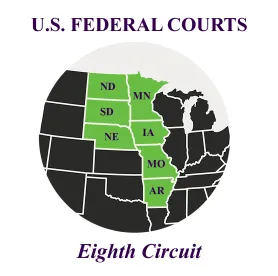The Eighth Circuit has affirmed that an AIG affiliate must cover the full $32 million loss stemming from an employee’s embezzlement scheme. The court found that not only was National Union Fire Insurance Company of Pittsburgh (“National Union”) liable for the $3 million the employee actually stole, but that the plain language of the commercial crime policy also required coverage for the $29 million in excess costs her scheme caused Cargill to endure.
Background
Diane Backis worked at a Cargill grain facility in Albany, New York for many years. The facility stored and sold grain that Cargill shipped to Albany from the Midwest via rail. Beginning in 2008, Backis hatched a scheme to embezzle money from Cargill. Backis misrepresented to Cargill the price at which she could sell the grain in the Albany market, causing Cargill to ship excess grain to Albany. Backis then entered false sales contracts into Cargill’s accounting system and manipulated the system to show grain sales at prices higher than those for which the grain actually sold.
Cargill discovered Backis’ wrongdoing in 2016 and notified National Union of its claim. Cargill then invoked the crime policy’s investigative settlement clause, which called for an investigator to “investigate the facts and determine the quantum of loss.” The provision provided that the report issued by the investigator “will be definitive as respects the facts and the quantum of loss.”
The investigator issued its final report in May of 2019. The report calculated that Cargill incurred losses of over $32 million as a result of Backis’ misrepresentations. The loss consisted of the $3 million Backis diverted to her own bank account plus $29 million in excess freight costs Cargill incurred to ship the grain to Albany. Despite the report, National Union only agreed to cover the $3 million that Backis embezzled and not the remaining $29 million.
National Union sought to confirm its position by seeking a declaratory judgment in Minnesota federal court. Cargill moved for judgment on the pleadings, which the district court granted, finding that the policy covered the full $32 million loss. National Union appealed to the Eighth Circuit arguing that facts were in dispute, that Backis’ conduct did not fall within the policy’s employee theft clause and that Cargill’s 2016 notice of claim was insufficient to trigger prejudgment interest.
Eighth Circuit Affirms Finding of Coverage
The Eighth Circuit rejected each of National Union’s arguments. First, the court explained that the investigative report, which National Union agreed would be definitive and binding, resolved any factual issues.
Next, the court rejected National Union’s arguments concerning the policy’s employee theft provision. The policy covers “theft,” which is defined as “the unlawful taking of property to the deprivation of the Insured.” The policy also provided that Cargill’s loss must have resulted “directly from” employee theft. While National Union argued that Backis’ control over the grain was not a “taking,” and therefore did not amount to theft, the Eight Circuit disagreed, finding that Backis took “implicit control over the grain such that her conduct constituted an unlawful taking.” Moreover, the $29 million in freight costs stemmed “directly from” Backis’ theft because her misrepresentations regarding the grain price were designed to, and did, induce Cargill to ship the grain. As a result, the causal chain between the employee’s theft and the losses incurred was not broken.
Finally, the court found that Cargill’s 2016 notice to National Union was indeed a “request for payment” sufficient to trigger the running of prejudgment interest under Minnesota law. The notice twice stated that it was “formal notification” of a claim relating to potential fraud and embezzlement, and thus was sufficient to alert National Union that Cargill was seeking insurance coverage.
Takeaways
The Eighth Circuit’s decision in Cargill represents a significant victory for the policyholders because, among other things, it recognizes both the breadth of the plain policy language used by the insurer and the practical consequence of the policy’s binding determination provision and holds the insurer to the terms of its bargain. The decision also underscores the practicality of Cargill’s decision to seek judgment on the pleadings, thereby avoiding the time and expense of discovery and denying the insurer any opportunity to create factual issues where the policy clearly intended to leave none. Recognizing such strategic opportunities is one reason why policyholders should engage experienced coverage counsel early in the claim process to ensure that such opportunities to resolve the matter expeditiously are not overlooked.




 />i
/>i
